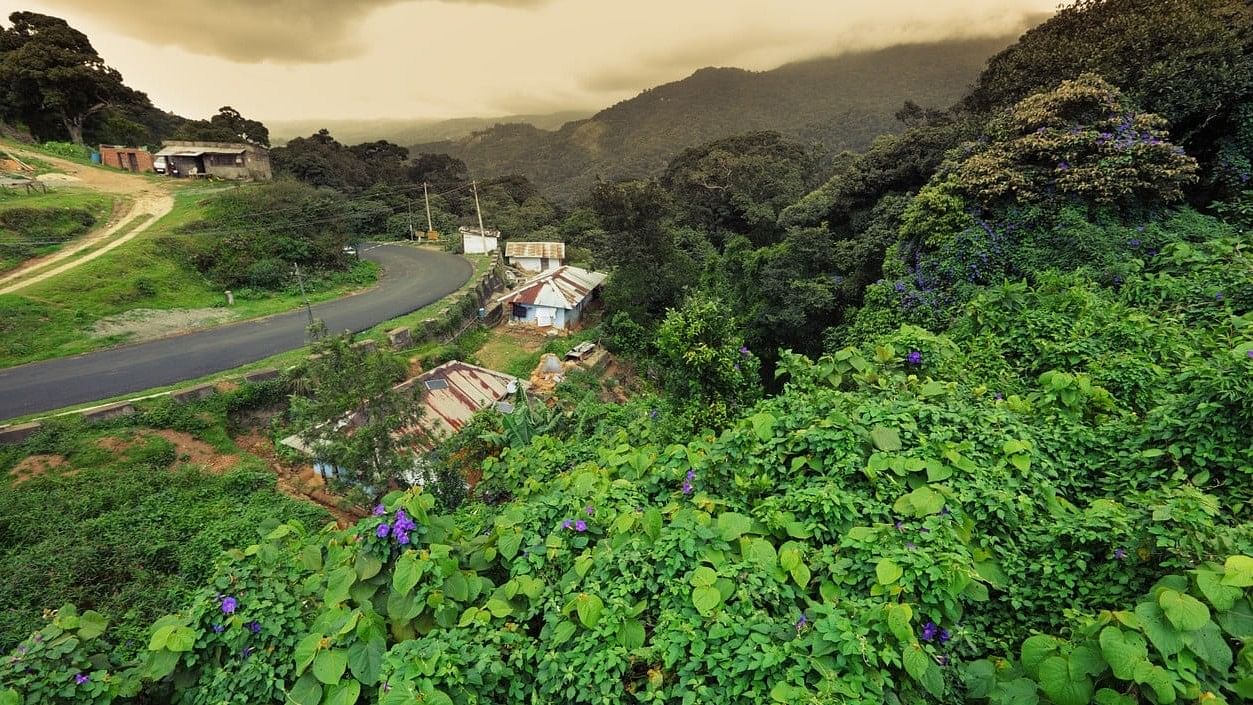
Representative image
Credit: iStock Photo
Karnataka’s decision to set up a special task force (STF) to clear all encroachments in the Western Ghats, which cover ten districts in the state, is welcome, though much more needs to be done to save the fragile region.
The Western Ghats extend over 1,600 km, covering 1.6 lakh sqkm in Tamil Nadu, Kerala, Karnataka, Goa, Maharashtra, and Gujarat. The Western Ghats form one of the major watersheds in the country, feeding many river systems that drain and irrigate about 40 per cent of the land in these states. It is a biodiversity hotspot, hosting different species of flora and fauna, and was declared a UNESCO World Heritage Site in 2012.
Some of the largest tracts of encroached forest land are in Karnataka. In March, Shivamogga topped the list with 80,775 acres, followed by Uttara Kannada (28,308 acres), Chikkamagaluru (25,978 acres) and Kodagu (6,287 acres). Over 2 lakh acres of forest land are encroached in the state. While the government failed to take any major corrective steps after the natural disaster that devastated Kodagu in 2018, the recent landslides in Shirur, which took ten lives, and the catastrophe in Wayanad, which left hundreds dead, have prodded it to take action, though belatedly.
Forest Minister Eshwar Khandre, while directing the STF to clear the Western Ghats of all encroachments, including plantations, buildings, and resorts, has righty acknowledged, “If we do not wake up now, the next generation will not forgive us.” However, a bigger problem than encroachments is the indiscriminate conversion of large tracts of agricultural land for commercial use without any regard for its impact on the ecology.
Hundreds of resorts and buildings have been permitted to come up to cater to the ever-increasing tourist flow, which is much beyond the carrying capacity of the region. Unless the government wakes up to the perils of excessive tourism and encourages sustainable tourism, there is not much hope for the Western Ghats. For instance, the tiny district of Kodagu, with a population of 5.6 lakh, had a tourist footfall of over 42 lakh last year.
The Gadgil and Kasturirangan committees, which had recommended several measures to protect the Western Ghats, including a complete ban on mining, have been gathering dust for decades. This is mainly due to opposition from the local population and a lack of political will. While Karnataka’s decision to clear encroachments is a step in the right direction, the need of the hour is an integrated approach by all states concerned to develop a combined strategy to save the Western Ghats.